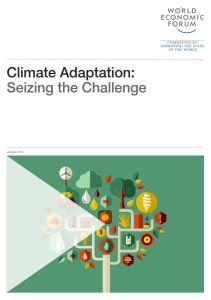Join getAbstract to access the summary!

Join getAbstract to access the summary!
World Economic Forum
Climate Adaptation
Seizing the Challenge
World Economic Forum, 2014
What's inside?
Why societies must economically adapt to climate change, and how they can do it.
Recommendation
The World Economic Forum’s Global Agenda Council on Climate Change offers a comprehensive overview of why the world must adapt to climate change. Providing valuable insight, the report suggests that societies can prevent as much as 65% of the projected losses from climate change through “adaptive investments.” This subject is vitally important, but the authors have cast the whole report in arms-length passive voice, thus their phrasing undercuts the urgency of their subject and their message – and yet, it is urgent. getAbstract recommends this thought-provoking study to decision makers in government and the private sector, as well as to activists, academicians and investors – in short, to everyone who bears the brunt of climate change.
Summary
About the Author
David Bresch, Sean de Cleene, Juan José Daboub, Rabi Mohtar, Richard Saines and Wu Changhua are members of the World Economic Forum’s Global Agenda Council on Climate Change, which seeks to enhance the ability of societies to withstand climate change.






























































Comment on this summary